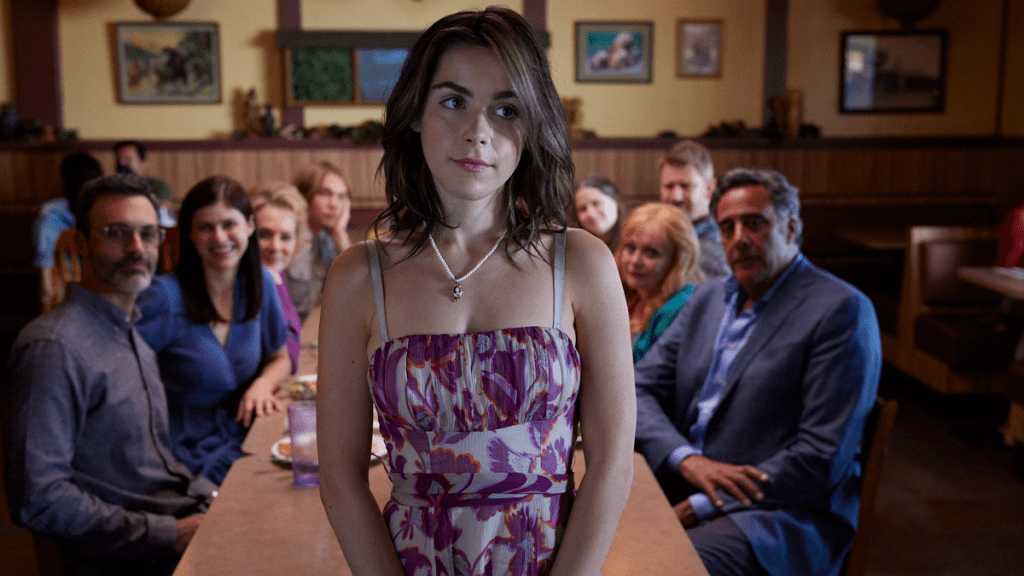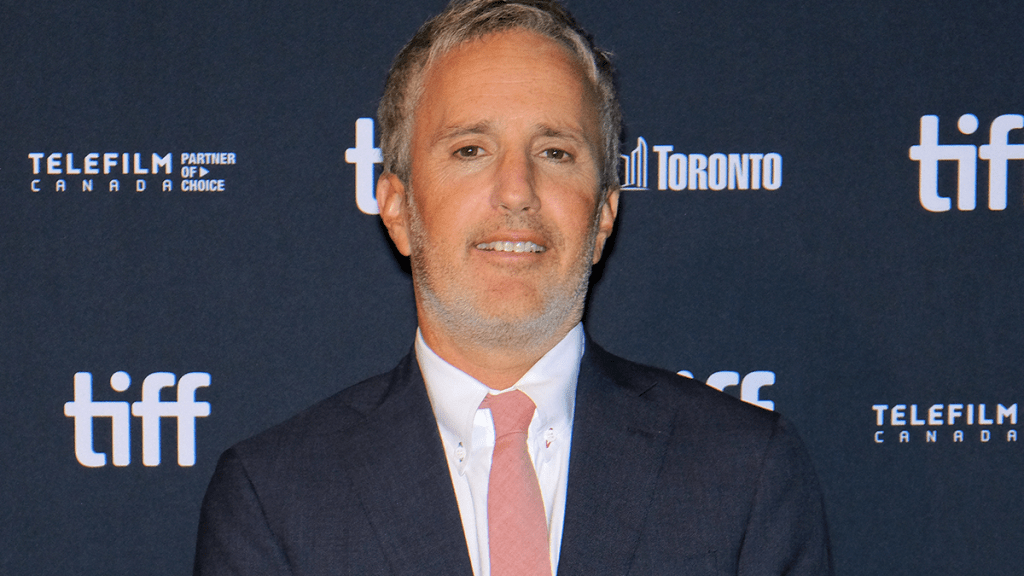ComingSoon Senior Editor Spencer Legacy spoke with Wildflower director Matt Smukler about the dramedy movie. Wildflower is now available digitally and through video-on-demand.
“A girl navigates life with two neurodivergent parents and an extended family that can’t quite agree on the best way to help,” reads the film’s synopsis.
Spencer Legacy: This is very unique as you directed the documentary Wildflower and now this drama. What was it about this true story that kept bringing you back to it and wanting to spotlight it in a different way?
Matt Smukler: It’s interesting, I didn’t really want to go back to it. It was a six-year project and I certainly didn’t want to recreate the same thing. I guess, ultimately, it was this idea that I did feel like it was such a unique story, and if I could tell it in a way that was potentially a little more accessible, through comedy mixed with heart, I thought that maybe we could reach more people. So that was ultimately the way that I decided, “Okay. Yeah, I do want to continue and give it another two years of my life.” [Laugh].
How do you think doing the documentary helped you in making this version better?
I don’t know if it was better. I think it’s just very different. What it was for me was … it was really an inspiration. The doc was really just truly an inspiration, and the narrative is its own thing completely. I think that’s kind of how I really look at it and it isn’t like it’s a retelling of the doc. It’s a very unique family dynamic. Then we just used that as a launch-off to write the narrative
I like the narration in the movie. Can you speak to that framing device and having her act as a mystery to get viewers initially invested?
That was from the beginning kind of when screenwriter Jana Savage and I talked about how we potentially would make this a narrative. That was always kind of part of it, is getting into her head. My niece was in a coma, and that’s where — taking some creative license to imagine what it must have been like. We did a bunch of research in terms of people who have had comas and their ability to actually hear and not speak, which is a phenomenon. So that was something where we used that as a device, as you say, and then just to almost imagine what it must have been like to have this very opinionated family surrounding you while you’re in the prison of a hospital bed.
Kiernan Shipka does such a great job. What qualities made you go, “She’s perfect for this role?”
Kiernan, from the beginning, was always my first choice. I think it was from Mad Men — she had such poise and such wisdom and such confidence at such a young age. The real person that we based this character on has all of those qualities. So it was very important to me that whoever we cast had that. When I met Kiernan, I knew within two seconds she was the one. There is just such a deep intelligence to her that I just found to be perfect. And strength too. I think there’s a real strength that comes through.
You’re also able to tell this coming-of-age story and it deals with so many difficult topics, but there’s a great sense of humor sprinkled in. How was it, balancing those elements?
That was one of the hardest parts for me, personally, is the tone of this and being terrified that I wasn’t going to get it right. I felt like bouncing back and forth between comedy and drama was very important, but at the same time, I wanted to make sure we’re not laughing at the wrong things. I think this family truly loves to laugh. I just wanted to lean into that and bring that aspect to life.
I think when the cameras stopped rolling in the documentary was when I saw a lot of laughter and joy. But I think for people who aren’t used to having cameras on them, obviously it took the cameras turning off for me to see some of that. So I was able to kind of bring that out, I think, in the narrative.
Alexandra Daddario gives such a caring performance as Joy. What stood out about working with her?
Alexandra and I had just a really long conversation and we talked about the character and I believe she saw the documentary. We just sort of had a really long conversation and I thought that she really possessed the empathy that Joy needed. There’s a duality to that character where … I think there’s this guilt that she had because she was born, quote, unquote “normal,” or without a disability — not being neurodivergent.
I think there was this feeling that I think you struggle with. Also this idea of being very protective of having a sibling who is neurodivergent. So I think we talked about all those things and how that would really be a part of your DNA, if you were raised with a sibling who has any sort of a disability.
What was the most difficult aspect to adapt when turning this true story into a drama and giving it a more traditional movie structure?
Huh … that’s an interesting question. I think that, again, in this inspiration, we took some of the characters and then put a lot of our own stuff onto them. There wasn’t anything that was that difficult. I think playing around with this idea of starting the movie with somebody in a coma who’s our star of the movie and for 20 pages or something … I’m thinking the original draft, she was in the coma for 30 or something like that.
So that was super challenging. We all felt like we have to get to Kiernan, older … I thought Ryan Kiera Armstrong, who played young Bea, was amazing, but at the end of the day, this is Kieran’s movie. So I think that was something that, in the edit, I struggled with, because I really wanted to get to get Kieran out of that bed, you know? That was the tricky part. It was like … I knew we didn’t want to be stuck in the hospital room for too long.
The love we see between Bea’s parents is really sweet. Can you speak to telling that story well and showing so many sides of them?
Yeah, that was something, too, that I just witnessed in the documentary. Just a very deep love that that is a non-traditional love in many ways. So it was very important to me to capture that and the spirit of these two people who really just wanted to, again, be quote, unquote “normal,” and that means live on their own in their own house, have a family, work and provide for themselves. I think that that was something that I really wanted to show in an as authentic a way a possible.
Your daughter wrote two songs for the movie. What was that collaboration like?
Oh, yeah. She watched the movie and that was a product of … it was a very limited budget. My daughter Penelope — I’m obviously very biased, but I think she’s very talented. She watched the movie and wrote both songs based on a rough cut of the movie. One of them was with her friend, Lola Quinn, and they go by Frances & Simone, and then Penelope wrote the song in the middle of the movie on her own. But yeah, it was really great. She watched it and I didn’t give her any direction whatsoever other than, “Here’s a rough cut and if it inspires you, maybe you can write something.” She did and I thought she did a great job.

You have such a great cast and there’s a great focus on the extended family and what they think is best for Bea. How was balancing all these elements and characters while still keeping Bea at the center?
It was tricky because I started falling in love with some of these other characters, like Brad Garrett was just amazing. Jana and I ended up writing a scene, literally we would wrap, and then, I went to Jana like, “Brad’s so good. We’ve got to write another scene with Brad and Jean [Smart], which we did. We did two and one ended up making it into film, and one … we ended up having to cut. It’s a tremendous scene, but it’s just … it’s interesting you say that, because it ended up sort of diverting us a little bit from Bea.
I had it in the movie at one point, and I think, ultimately, just felt like this really is Bea’s story and I’ve got to keep it that way. It’s about Bea finding her way with her extended family as opposed to … I could do a movie on each one of their extended family members, and their reaction to this, I think, would be actually quite interesting.
Speaking of Brad Garrett, what impressed you most about working with him?
Oh, man. He came in — I think I only had Brad for … I want to say two days. I barely had him, and he just came in and brought his A game. I was obviously very used to him as a comedian and I thought that his dramatic work was just incredible. Him and Jean together … it was one of my favorite scenes in the movie. I loved it. It was one of those things where I just had to stand back and not get in their way.
You also have a background in commercials. How has that helped your feature work?
I think it really helped me because I had thousands of hours of time on set, so I think just the knowledge of how, technically, to put this together. I at least had that behind me. Working with actors for 15+ years really helped me, and having a very strong point of view of how I wanted to execute.










